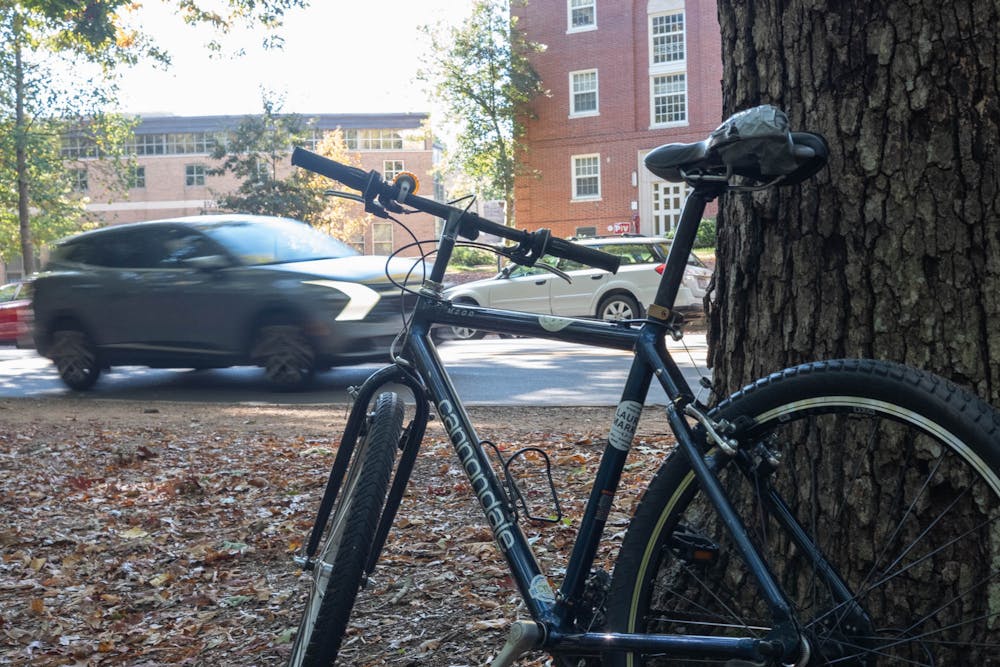“Should a developer request a zoning change to upzoning, we can set policies on what that would require from an environmental perspective to offset the increased density,” Soll said in an email.
Parks
All council candidates have acknowledged the importance of more parks and green space, which can contribute to environmental sustainability. A priority for some candidates is how the Town should use the American Legion Property.
Some candidates, including Melissa McCullough, support using one-third of the land on the property to build affordable housing, and adding the rest of the land to the neighboring Ephesus Park.
“We'll have a win-win — so a great park and affordable housing,” McCullough said.
With this plan, the pond on the property will be drained. Town council candidate Jon Mitchell, who also supports the housing plan, said although the pond has environmental benefits, it needs to be drained because the dam is extremely old, creating a potentially hazardous situation if the dam were to fail.
Town council candidate Breckany Eckhardt said in an email that the slate she is running on with Soll, David Adams and Elizabeth Sharp supports keeping the pond and converting the entire space into a park.
Hoagland supported turning the space into a park as well as keeping the pond, but he said the property should also be home to a new police station.
Transportation
Vehicle emissions are the top source of air pollution in Chapel Hill, so building more greenways will encourage people to walk and bike as alternative modes of transportation, said town council candidate Theodore Nollert. Chapel Hill currently has about 17.6 miles of both paved and natural-surface greenways, and all candidates advocate for adding more of these shared-use paths.
For example, Mitchell said most of his transportation around Chapel Hill is via ebike. Mitchell said the current mileage of greenways must at least double in order for people to change their habits and turn to their bike as a primary use of transportation.
“If we do it, I think we can get a lot of results in terms of lower carbon emissions and freeing up roadway capacity, not to mention just more fun to get around,” Mitchell said.
To get the day's news and headlines in your inbox each morning, sign up for our email newsletters.
He said building paved trails is expensive — construction can cost over $1 million per mile — so federal funding can be the solution. This year the Town received a $1 million grant from the U.S. Department of Transportation to conduct a feasibility analysis on an additional 25 miles of greenways.
Eckhardt said in an email that natural surface trails are much less costly and would be a smarter design.
Greenways serve an ecological purpose, too. McCullough, who has decades of experience with the Environmental Protection Agency, said pollinators are “in trouble” due to habitat destruction, so she supports planting greenways with native species to serve as pollinator corridors.
To help reduce vehicle emissions, additions to Chapel Hill Transit can also limit the number of cars on the road. Mitchell and McCullough support a Bus Rapid Transit route between Durham and Chapel Hill, a major commuter route.
“We're thinking about how to design a town that adapts to the reality of both the climate crisis and the type of lifestyle that folks of our generation and younger seem to be interested in," Nollert said.
@torinewbyy
@DTHCityState | city@dailytarheel.com




